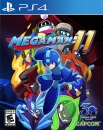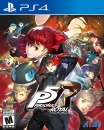I disagree, the best era was end of the 90's to early 2000s
Mostly because of the arcades which were fun, I actually just bought recently an arcade with over a thousand games to relieve those golden days.
The era with the dreamcast was the best ever, we had fun games, that were focused on gameplay and fun. Nowadays we have to worry if we even find a console to buy, or big installation times, big downloads and updates and bugs, and gaming is just focused on business, its all turned into a big mcdonalds, corporations charging 70 British pounds for games that used to be 45 pounds before. Games that wont work offline, I cant even restart a career in GT7, imagine that in 98 I could do just that on GT1.
Then there's no more fun of going to you local arcade place with friends and hangout there. And there's no more new stuff, everything is either a sequel, a remake/remaster or a copy of something else, pick any game, horizon forbidden west, assassins creed, resident evil, anything.
Gaming has gotten better graphics and all that, but the joy is half gone. It seems that single player games you only play to pass the story, to finish the game, where in those old days games were played for fun, not to finish them.
Gaming was exciting back then, imagine having something totally new as in metal gear, and resident evil, tomb raider, sonic adventure, pikmin, crazy taxi, shenmue and many more, it seemed that each game was something new, fresh, different and exciting, these days you just feel that you've played these games before.






























































